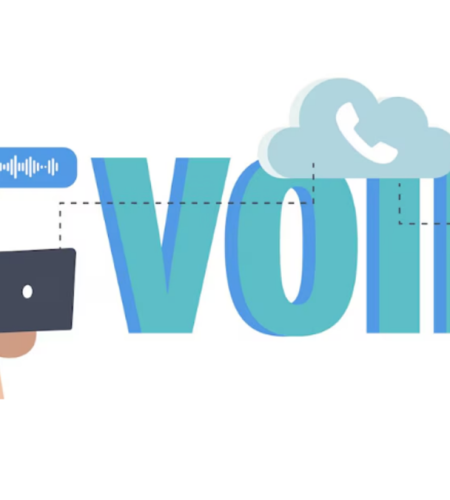In today’s competitive business environment, enterprises are constantly seeking ways to reduce operational costs and improve efficiency. One technology that has gained significant traction in recent years is Voice over Internet Protocol (VOIP). By allowing voice communication over the internet, VOIP offers businesses a flexible, cost-effective alternative to traditional telephony systems. Whether your enterprise operates in a single location or across multiple countries, including regions like the UAE, VOIP can deliver substantial benefits.
What is VOIP?
Voice over Internet Protocol (VOIP) is a technology that enables voice communication and multimedia sessions over the internet. Unlike traditional phone systems that rely on analog signals sent over copper wires, VOIP converts voice signals into digital data packets, which are transmitted over the internet. This not only simplifies communication but also reduces the costs associated with maintaining separate networks for data and voice.
Cost Reduction Through VOIP
- Lower Call Costs: One of the most immediate benefits of implementing VOIP is the reduction in call costs. Traditional phone systems, especially those involving international calls, can be expensive due to the infrastructure required to support them. VOIP, on the other hand, routes calls through the internet, often at a fraction of the cost. For enterprises that make frequent long-distance or international calls, this can translate into substantial savings. For instance, companies using UAE VOIP services can experience significant reductions in the cost of calling clients or partners overseas.
- Reduced Infrastructure Expenses: Traditional telephony systems require extensive infrastructure, including copper wiring, PBX (Private Branch Exchange) systems, and dedicated maintenance teams. VOIP eliminates much of this physical infrastructure, as it relies on the existing internet connection. This not only reduces the capital expenditure required to set up communication systems but also lowers ongoing maintenance costs.
- Scalability: Scaling traditional phone systems can be both complex and expensive. Adding new lines often involves additional hardware and increased maintenance. With VOIP, scalability is much simpler. Adding a new user or extension typically requires only a software configuration, which can be done in minutes. This is particularly advantageous for rapidly growing businesses or those with fluctuating staffing levels, as it allows them to easily adjust their communication capabilities without significant investment.
- Bundled Services: Many VOIP providers offer bundled services that include voice, video, and messaging, all within a single platform. These bundles can reduce costs further by eliminating the need for multiple service providers and separate billing systems. Additionally, these integrated communication platforms often include advanced features like call forwarding, voicemail-to-email, and video conferencing at no extra charge, providing added value for enterprises.

Improved Efficiency with VOIP
- Enhanced Mobility: VOIP offers unparalleled mobility, allowing employees to make and receive calls from anywhere with an internet connection. This is particularly beneficial in today’s world, where remote work and telecommuting are becoming increasingly common. Employees can stay connected with colleagues and clients whether they are in the office, at home, or on the go, thus improving overall productivity and efficiency.
- Unified Communication: VOIP systems often come with Unified Communications (UC) capabilities, which integrate various communication tools into a single platform. This means that voice, video, messaging, and conferencing can all be managed from one interface. The result is streamlined communication processes, reducing the time and effort required to switch between different tools. For enterprises operating in regions like the UAE, VOIP systems can be customized to include local communication needs, such as integration with UAE VOIP services, ensuring seamless communication within and outside the country.
- Advanced Features: VOIP systems are equipped with a range of advanced features that enhance communication and improve efficiency. These include automated attendants, call routing, call analytics, and CRM (Customer Relationship Management) integration. Automated attendants can handle routine inquiries, freeing up employees for more complex tasks, while call analytics provide valuable insights into communication patterns, enabling better decision-making.
- Improved Collaboration: VOIP facilitates real-time collaboration through features such as video conferencing, screen sharing, and instant messaging. Teams can collaborate effectively regardless of their physical location, leading to faster decision-making and project completion. This is particularly useful for enterprises with distributed teams or multiple offices, as it ensures that all employees are on the same page, regardless of where they are located.
- Reliability and Redundancy: Modern VOIP systems are designed with reliability and redundancy in mind. Many providers offer failover options that automatically reroute calls to mobile devices or alternate numbers in the event of an internet outage. This ensures that communication remains uninterrupted, even in adverse conditions, thus maintaining business continuity.
Conclusion
VOIP is a powerful tool that can help enterprises cut costs and improve efficiency. By reducing call costs, minimizing infrastructure expenses, and providing scalable solutions, VOIP offers a compelling alternative to traditional telephony systems. Additionally, the enhanced mobility, unified communication, and advanced features of VOIP contribute to a more efficient and productive workforce. For enterprises looking to stay competitive in the global market, including those utilizing UAE VOIP services, VOIP represents a strategic investment in the future of business communication.

